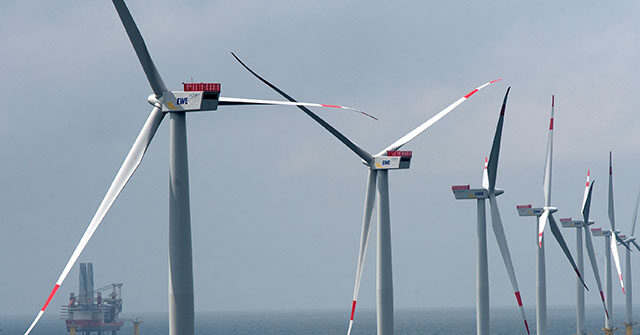Top News
Green Energy Stocks Rocked by High Interest Rates

Green energy stocks have dropped significantly in the last few months, underperforming compared to oil and gas companies, as high interest takes its toll.
The S&P Global Clean Energy Index, which comprises 100 of the biggest companies in green energy, has dropped over 20 percent in the last two months, Financial Times reported Monday. In contrast, the oil and gas-rich S&P 500 Energy Index has grown by six percent.
“There’s a dark cloud hanging over green stocks,” Martin Frandsen, a portfolio manager at Principal Asset Management, told the publication.
The drop in the green energy sector continues despite tens of billions of dollars of tax credits, loans, and subsidies. According to Financial Times:
The renewable sector has been particularly vulnerable to rising interest rates because many companies agree long-term contracts, fixing the price at which they will sell energy, before developing their projects.
As global inflation has surged, green energy companies have been hit by a huge rise in costs, exacerbated by growing demand for renewable projects, while elevated rates have made their high levels of borrowing more expensive to service.
“Two years ago we got a huge growth in commitments to hit net zero, which translated into a lot of investment opportunities. Then we hit this inflation wave and companies that locked in their [electricity] prices have been left very exposed. The lag effect is hitting now,” Frandsen continued.
Other money managers contended that green energy businesses do not fare well during periods of high inflation.
David Souccar, a portfolio manager at Vontobel Asset Management, said, “To support rapid growth, you need to keep leveraging the balance sheet or issue equity. In a zero-rate environment, this formula worked. In a higher-rate environment, it falls apart.”
Renaud Saleur, a former trader at Soros Fund Management, who heads Anaconda Invest, suggested that wind power production would not do well unless government subsidies were increased.
“The contracts signed for offshore [wind] will be heavily lossmaking for a long time until the different governments realise that they need to give $80-$100 per MWh and not $30-$40,” Saleur argued.
Sean Moran is a policy reporter for Breitbart News. Follow him on Twitter @SeanMoran3.
Read the full article here


















